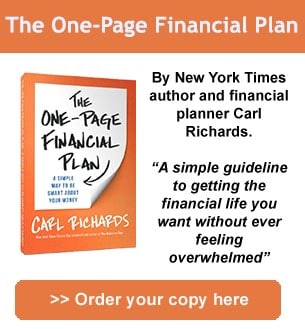There are two types of experts in the world: real experts, and fake ones.
The real experts are the people who spend many years refining their knowledge and skill set in a particular area and become masters of pattern recognition.
But all too often, they end up toiling away in relative obscurity and poverty, neither maximising their opportunity for impact nor earning the money they deserve.
This makes me sad.

Real experts deserve so much more, and they could make so much more of a difference in the world if they could just figure out how to be heard above the clamour of …
Fake experts 
This group makes me mad.
You know the type.
These are people, as the writer Sean Blanda put it in describing certain other writers, whose “interest is not in making the reader’s life any better, it is in building their own profile as some kind of influencer or thought leader.”
Your inbox is probably full of fake experts and their garbage.
They are people like the speaker I heard at a conference who claimed that all you had to do to be an expert was raise your hand.
That’s not expertise.
It’s snake oil.
Both of these groups share one problem:
They misunderstand the business of expertise.
One group undervalues real knowledge; the other group overvalues fake knowledge.
I didn’t realize that there was a way to fix this problem.
In fact, I didn’t even know exactly what the problem was until I read David Baker’s new book, “The Business of Expertise.”
What’s so compelling about Mr. Baker is that he’s an expert on being an expert.
And because he is so knowledgeable about what true expertise entails, he is able to help both real and fake experts alike.
If you’re a fake expert, this book will teach you how to become a real expert (assuming you actually care about that). And if you’re a real expert, this book is a road map to converting your insight into greater impact and financial security.
One of Mr. Baker’s key insights is the decoupling of time and results.
Experts can often see a problem and quickly provide a solution, and that makes them valuable, even though it appears easy and quick in each instance.
In fact, it’s not easy at all
You become an expert through repeated exposure to similar patterns.
After doing hundreds of financial planning meetings with new or potential clients, I started noticing those patterns.
Eventually, I got to the point where in the first 10 minutes of asking about people’s goals, I often knew exactly where they were headed, what sort of risk they might be comfortable with and where the challenges might be.
Don’t worry that you won’t be rewarded for your speed, once you do get faster
Recall the tale of the old lady with the squeaky floorboard.
It had been squeaky for 20 years.
She finally called the wise old carpenter.
He came in, stepped on the floorboard once and then twice, then took out a hammer and nail. 
Finally, he pounded the nail into the floorboard.
He handed the lady a $100 invoice, and she wanted to know why 10 minutes of his time required such a big payment.
“Oh,” said the carpenter. “I forgot to itemise that.”
Nail: $1.00
Knowing where to pound nail: $99.00
She paid.
And Mr. Baker taught me much more about the value of knowing exactly where to pound.
This article originally appeared in The New York Times
from Property UpdateProperty Update https://propertyupdate.com.au/fake-experts-abound-heres-how-to-find-a-real-one/

No comments:
Post a Comment